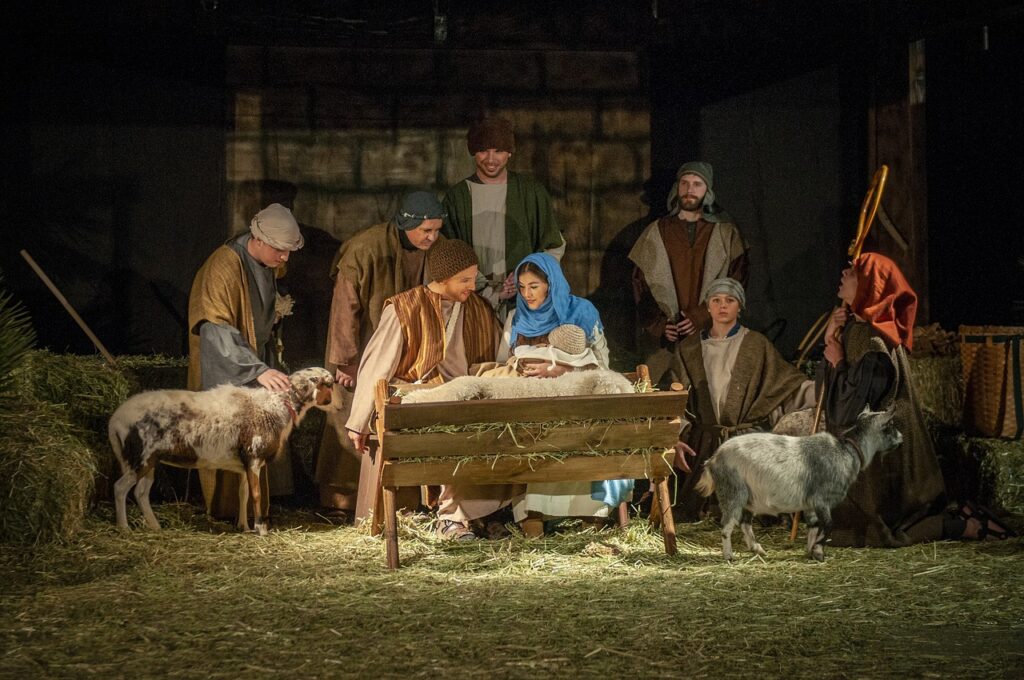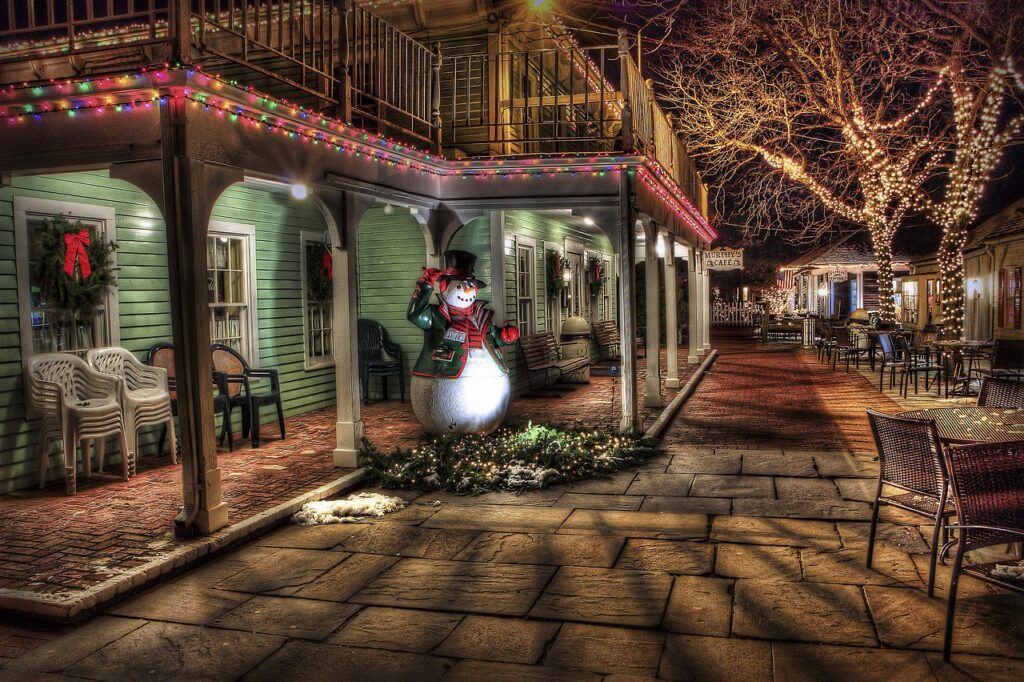Have you ever wondered why we celebrate Christmas on December 25th as the birthdate of Jesus Christ?
Who came up with December 25 as the day that Jesus was born?

Who came up with December 25 as the day that Jesus was born?
By The Editorial
The question has puzzled many, but the answer is quite fascinating. By understanding the historical significance of this date, we can gain a deeper appreciation for the traditions passed down through generations. Join us below on a journey to uncover the origins of this beloved holiday and discover why December 25 holds such special meaning for millions worldwide.
What’s the meaning behind the word Christmas?
The word “Christmas” has its roots in the Old English word “Cristesmæsse,” which means “Christ’s mass” or “the Mass of Christ.” “mass” refers to a religious service or celebration, particularly in the Catholic Church, where the Eucharist or Holy Communion is conducted.
The essence of Christmas lies in commemorating the birth of Jesus Christ. The term “Christmas” is a combination of “Christ,” the title given to Jesus, and “mass,” which underscores the religious importance of this event. As time went by, Christmas acquired both religious and secular aspects, and it now encompasses a wide variety of customs and festivities that differ from place to place, depending on the culture and community.
Was Jesus Born on December 25?
It is widely acknowledged among scholars that Jesus was not born on December 25. The selection of December 25 for the celebration of Christmas is considered to have been influenced by the Roman celebration of the winter solstice, as well as the early Christians’ attempts to convert existing pagan festivals into Christian celebrations.
Although the date of December 25 for the Christmas celebration is historically inaccurate, many Christians still commemorate Jesus Christ on this day. The Bible doesn’t specify the exact date of Jesus’ birth, leading to various theories about the timing of his birth.

Christmas holds a special place for both Christians and non-Christians alike. It is a time to ponder the religious significance of the birth of Jesus, express gratitude, and commemorate the message of love, peace, and goodwill associated with the Christmas story. Furthermore, Christmas’s cultural and festive aspects have become deeply rooted in numerous societies, with people worldwide engaging in various traditions and celebrations during this time.
The significance of celebrating Christmas on December 25 lies in the personal and communal meaning of the event rather than its historical accuracy. It is a time for reflection, joy, and bringing families and communities together in celebration.
Pope Julius I established December 25 as the date of Jesus’ birth in the 4th century. However, it’s essential to understand that historical evidence is not entirely conclusive, and determining the date was likely based on various factors.
The festival of Saturnalia, celebrated by the Romans to mark the winter solstice, took place towards the end of December. Catholic leaders may have linked Jesus’ birth with this festivity to provide a Christian perspective during a time when people were already celebrating. The aim was to offer a Christian celebration that could rival or surpass pagan festivals.
The precise origins of the December 25 date are unknown. Still, it is essential to remember that the date was chosen for symbolic and strategic reasons rather than because it was recognized as the actual birthdate of Jesus.
The Catholic religion established December 25 as the birthday of Christ.
The tradition of celebrating Jesus Christ’s birth on December 25 is often credited to the Catholic Church. At the same time, it is believed that Pope Julius I officially established December 25 as the date for celebrating the birth of Jesus in the 4th century. It is essential to note that multiple factors likely influenced this decision. The exact historical details may not be fully documented.

Catholic leaders intentionally chose December 25 to celebrate Christmas to align with pagan festivities such as Saturnalia, which took place during the winter solstice. By doing so, they aimed to offer a Christian alternative to the widely celebrated pagan practices, making it more straightforward for people to switch from pagan rituals to Christian-related ones.
Therefore, while the Catholic Church played a significant role in shaping the celebration of Christmas on December 25, it’s more accurate to attribute it to the early Christian community’s efforts to establish a unified celebration of Jesus’ birth that would resonate with a broader audience.
During Christmas, people exchange gifts and create memorable experiences as the year ends and a new one begins.
Joy is a crucial element of the Christmas season. It is essential to spread happiness and cheer during this festive time.
Christmas has evolved into a time of joy, generosity, and celebration, with gift-giving being a significant practice in many countries. People frequently give and receive gifts to convey their love and gratitude for one another.

The end of the year and the beginning of a new one is a natural time for reflection, gratitude, and spending quality time with loved ones. Many people use this period to create cherished memories, strengthen bonds with family and friends, and engage in various festive activities.
Although Christmas has a religious significance for many, it has become a more cultural and secular holiday season. It has become a time for people from diverse backgrounds to unite in a spirit of generosity and merriment. Whether through religious customs, festive decor, holiday feasts, or acts of kindness, Christmas is now a multifaceted celebration that brings people together to share joy and form cherished memories.
Christmas holds a special significance for Christians.
It commemorates the Birth of Jesus Christ, who came into this world as a human being and spiritually resides in our hearts. Though we know that the actual date of His birth is not December 25, we celebrate it as a reminder of the spiritual significance of his coming.

Merry Christmas to all our esteemed readers.




